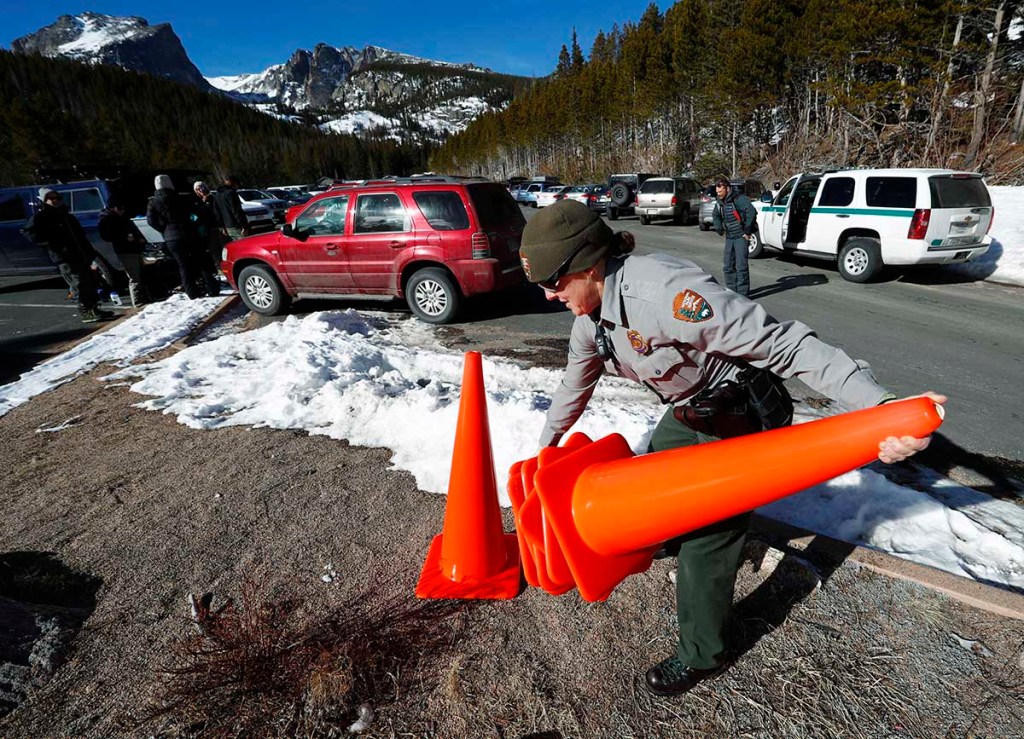Despite shutdown, USDA inspections continue
Published 5:45 am Sunday, January 21, 2018

- Park Ranger Amy Fink place pylons in the parking lot for the Bear Lake trail in Rocky Mountain National Park, Saturday, Jan. 20, 2018, in Estes Park, Colo. Despite a government shutdown, Rocky Mountain National Park in Colorado and Yosemite National Park in California were open, but few Park Service staff were available to help visitors.
Even with the shutdown of the U.S. government certain vital services will continue, such as regular poultry inspections.
The news is important for Cullman County, which is a top producer of poultry products in the state and nation.
Congress recognizes food inspection as an essential service because of health and safety issues, according to the United States Department of Agriculture.
U.S. Secretary of Agriculture Sonny Perdue and other top officials are expected to remain on duty, but more importantly the fulltime inspectors who are in the poultry processing plants will continue their roles.
Congress has recognized that there are some USDA services that cannot be interrupted – even for a day – without risking massive damage to the economy. A prime example is meat inspection. Slaughter and meatpacking operations across the country would be forced to shut down without the presence of inspectors from the Food Safety and Inspection Service, according to information released by the USDA.
So, shutdown or no shutdown, FSIS inspectors and support personnel will be ensuring that the U.S. commercial supply of beef, pork, poultry and egg products will not grind to a halt. Federal law, in the form of the Federal Meat Inspection Act, the Poultry Products Inspection Act and the Egg Products Inspection Act don’t allow the service to stop.
“In the case of a federal government shutdown FSIS inspectors would continue to conduct inspections, take regulatory enforcement actions when appropriate, and conduct laboratory testing to ensure the safety and wholesomeness of all meat, poultry, and egg products,” according to a USDA spokeswoman speaking to Agri-Pulse, an organization that specializes in reporting on agriculture issues.
Cullman County’s poultry processing plants that produce products for human consumption will continue to have inspections under the government rule.
American Proteins, which purchases poultry byproducts for pet food and other non-human consumption products, does not fall under the constant FSIS inspections, said Jason Spann, general manager at the company’s Cullman plant.
“We’re mandated by the FDA. It’s at the finished end with what we produce,” Spann said. “The processing plants, the ones producing food for people, have people who are fulltime inspectors from USDA. They will look at the process all the way through. They inspect bird by bird.”
In the last government shutdown several years ago, Spann said he didn’t recall any issues where food inspection was interrupted.
“We’re buying the byproducts from the processors, so it places us in a different category where inspections are concerned,” he said
Other key USDA services that will not halt are the inspection and weighing of grains that farmers and exporters depend on to ensure the shipment of U.S. corn, soybeans, wheat, sorghum and other commodities around the world. Most of these services are paid for by user fees, outside the appropriations process, but even some of the work that’s only partially funded by the fees will continue under USDA’s Grain Inspection, Packers and Stockyards Administration (GIPSA), according to the USDA.


